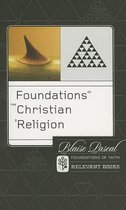Foundations Of Christianity A Study in Christian Origins
Afbeeldingen
Sla de afbeeldingen overArtikel vergelijken
Auteur:
Karl Kautsky
- Engels
- Paperback
- 9780902869936
- 07 juli 2007
- 288 pagina's
Samenvatting
Karl Kautsky is probably the first Marxist to interest himself both in the movement and the enigmatic personality of the crucified prophet. His 1908 book The Foundations of Christianity is a rather impressive attempt at a Marxist analysis. The book is rather original, innovative and has been rranslated into nine languages. Kaustky made his Foundations of Christianity into one of the most popular Marxist theoretical works. Its popular success is probably due to the interest of socialist militants to see a vision of the origins of Christianity which permits the modern workers' movement to appropriate to itself the figure of Jesus as a prophet and martyr for the proletarian cause. Kautsky wanted to interpret early Christianity as a precursor of the contemporary working class socialist movement. His friend, and later his opponent, Rosa Luxemburg, in an article of 1905 called "The Church and Socialism insisted that the first Christian apostles were Communists who denounced injustice and the cult of the Golden Calf." He counterposed a materialist account of the new religion against the Christian mythology and showed the capacity of the Marxist method to give an account of a complex historical process, interpreting a religious phenomenon in terms of the class struggle. The book is divided into four sections: 1) Society at the time of the Roman Empire: the slave economy, the absolutist forms of the state, the different manifestations of cultural and religious crisis. 2) Judaism: the class conflicts of Israelite society and the various political-religious currents (Sadducees, Pharisees, Zealots and Essene. 3) The beginnings of Christianity: the early Christian communities, the idea of the messianic Christ and Christian communism. 4) The fourth section is dedicated to the "personality of Jesus." According to Kautsky, what distinguishes Jesus' messianism from the other rebellious Jewish prophets of the era - all of whom had a strictly national character - is its social character, its calling as an international redeemer. "Only the social Messiah, not the national, could transcend the limits of Judaism," survive the destruction of the temple in Jerusalem and, above all, find a hearing among the poor of all nations. By associating the hostility of the oppressed classes to the rich with proletarian solidarity, the messianism of the Christian communities promised the redemption of the poor, and so it could gain followers beyond the Jewish world. In the last analysis, Jesus, "the crucified proletarian Messiah" managed to defeat Rome and conquer the world, but in the course of this process the Christian movement suffered an "inverse dialectic" it lost its proletarian and communist character and was transformed into a state religion, under the control of a vast dominating and exploiting apparatus - the Church.
Productspecificaties
Wij vonden geen specificaties voor jouw zoekopdracht '{SEARCH}'.
Inhoud
- Taal
- en
- Bindwijze
- Paperback
- Oorspronkelijke releasedatum
- 07 juli 2007
- Aantal pagina's
- 288
- Illustraties
- Nee
Betrokkenen
- Hoofdauteur
- Karl Kautsky
- Hoofduitgeverij
- Resistance Books
Overige kenmerken
- Editie
- New title
- Extra groot lettertype
- Nee
- Studieboek
- Nee
- Verpakking breedte
- 246 mm
- Verpakking hoogte
- 242 mm
- Verpakking lengte
- 189 mm
- Verpakkingsgewicht
- 520 g
EAN
- EAN
- 9780902869936
Je vindt dit artikel in
- Categorieën
- Boek, ebook of luisterboek?
- Boek
- Taal
- Engels
- Beschikbaarheid
- Leverbaar
- Studieboek of algemeen
- Studieboeken
Kies gewenste uitvoering
Kies je bindwijze
(4)
Prijsinformatie en bestellen
De prijs van dit product is 24 euro en 99 cent.
2 - 3 weken
Verkoop door bol
- Prijs inclusief verzendkosten, verstuurd door bol
- Ophalen bij een bol afhaalpunt mogelijk
- 30 dagen bedenktijd en gratis retourneren
- Dag en nacht klantenservice
Rapporteer dit artikel
Je wilt melding doen van illegale inhoud over dit artikel:
- Ik wil melding doen als klant
- Ik wil melding doen als autoriteit of trusted flagger
- Ik wil melding doen als partner
- Ik wil melding doen als merkhouder
Geen klant, autoriteit, trusted flagger, merkhouder of partner? Gebruik dan onderstaande link om melding te doen.








